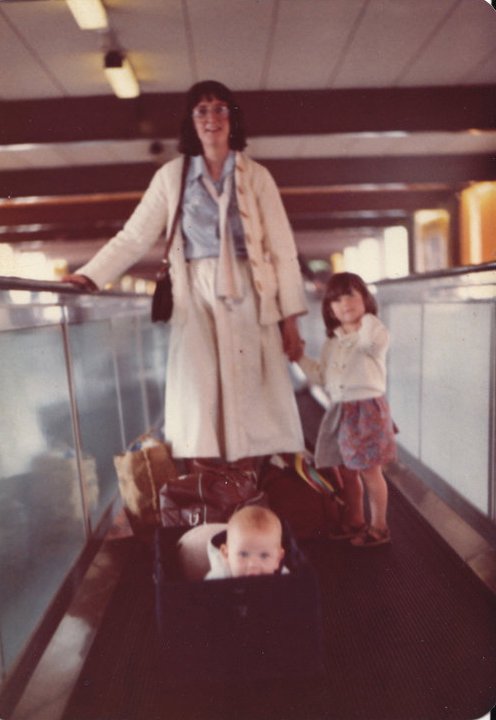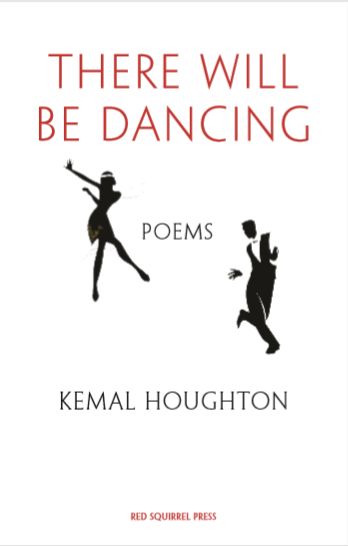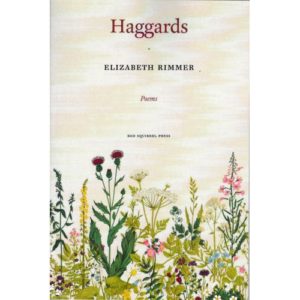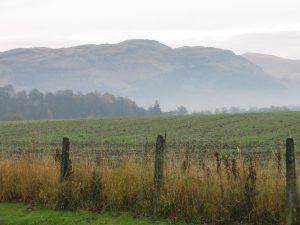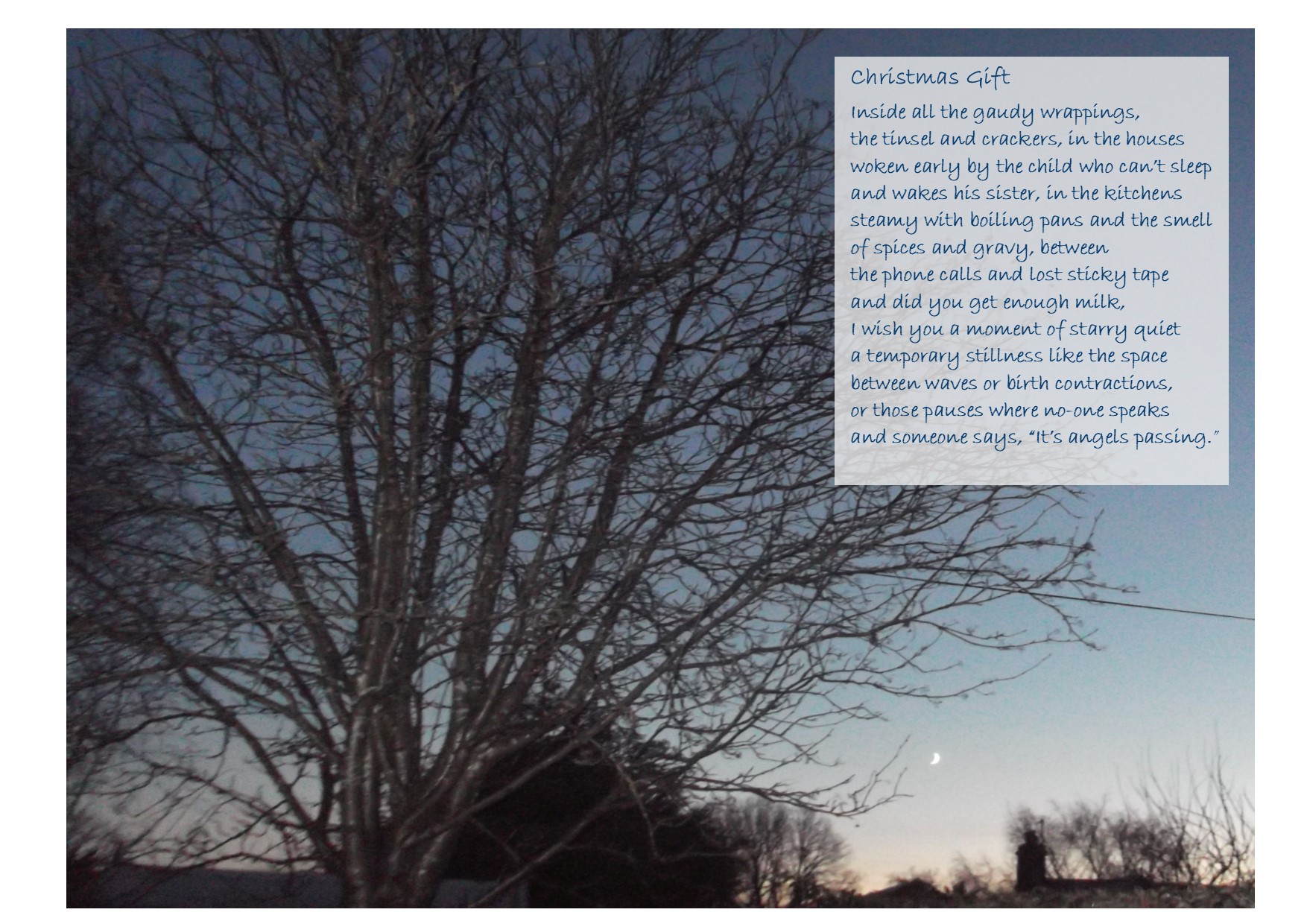
‘
In the unusual circumstances posed by the corona virus, formal launches of books have been cancelled – at least for now. So I would like to welcome you to the virtual launch of a novel by Mandy Haggith, whose poetry collection Why the Sky Is Far Away was published last year by Red Squirrel Press.
The Lyre Dancers, published by Saraband, sees the return of former slave, indomitable survivor and now matriarch Rian to her Celtic homeland, c. 300 BC.
A beautifully written, engrossing tale, Haggith plunges us into a world seldom explored in historical fiction: the Iron Age. But despite its distance from our own times, The Lyre Dancers is peopled with readily identifiable characters whose emotions and circumstances we relate to instantly. A cast of characters both fictional and real: explorers, slaves, warlords and healers.
In the third and final volume of her extraordinary, imaginative Stone Stories trilogy, Mandy Haggith takes us back to prehistoric times for an intergenerational saga that navigates changing fortunes, from plundered riches and feuding warlords to betrayals and menacing curses. The Lyre Dancers revisits the unforgettable cast of characters we met in The Walrus Mutterer and The Amber Seeker, weaving a powerful narrative that challenges our modern views of family, gender roles and our place in the environment.
The opening of the book.
Rian couldn’t sleep. She sat up in bed, tugging tangles out of her hair. It was still her best feature, the colour of amber, as Pytheas used to be so fond of pointing out. She was no longer the wraith she was when she ran away from him. Her fingers were toughened by years of scrubbing and pounding, milking and churning, grinding and peeling. Who could imagine food and herbs could make a woman’s hands so rough? They were always worst at this time of year, chapped and stinging after the winter. She had yarrow butter to soften them, but never remembered to use it, always leaving it until a cut became sore. One of those nail-edge rips that refuse to heal caught on her hair with a twinge. She sucked it, worrying.
Eventually she shook Manigan awake.
‘There’s something wrong about that woman.’ She spoke in a whisper, even though the cliff-top house walls were thick stone. Sound moved in strange ways around these buildings: you could hear voices from places you couldn’t see.
She lit a lamp. They had been given a splendid room. The bed was solid, with curtains on three sides, including the one she was on next to the wall. The cloth was well woven and the warm colours shone in the flicker from the wick: a deep red and mellow brown with light green patches. It made her think of rowan trees. The coverlet was a patchwork of furs that had been so warm she’d had to throw it off in the night. Despite the comfort, she had hardly slept.
Manigan grunted and groped for her hand. His thick braid of hair was shot with a touch of silver, but she still found him the most beguiling person she had ever set eyes on. Still lithe, his smile still wonky. His beard was short-cropped and it suited him. After a night’s sleep he was looking comfortably tousled again, a bit scruffy, and his sea-weathered skin was more relaxed than the day before at the party. She always thought he looked like a naughty child when he was freshly scrubbed. It wasn’t his natural state.
When he stirred again, she said, ‘There’s something not right.
She gives me the creeps.’
‘Who?’ His voice was woolly with sleep.
‘Cuilc. She’s too happy. I don’t believe in her.’
He opened his eyes and gave her one of his baleful stares. ‘Of course she’s happy. It’s only the bride’s mother that gets sad at handfastings. She just got herself a daughter-in-law to do her laundry for her and cut the hay.’
Rian snorted. ‘Can you imagine?’
They both chuckled at the picture of Rona attempting to wield a scythe or thump a laundry tub.
‘She’ll have to grow up now. She’ll be fine. They’re good people,’ Manigan said.
It was true, she knew this. The handfasting had shown the community in a good light: plenty of funny stories and more food than you’d expect for spring. The boy Eadha adored Rona and she bore a mad passion for him. The only wrong note was his mother.
She pulled her hand out of Manigan’s grasp. ‘What if she’s my mother?’
‘Ach, be quiet. What on earth would make you think that?
She’s not old enough.’
‘How old was I when I had Soyea?’
Manigan sighed. ‘Did you drink too much last night?’
She sulked for a while at that. ‘Did you hear Uill Tabar is dead?’
It had been the sort of gathering where you heard news about people you hadn’t seen for years. The old mystic had died, seemingly, on a boat headed for the Long Island. He’d been helping with a tack and the boom had slipped out of the hands of the boy at the bow and caught Uill on the head. He had never come round.
Manigan pushed himself into a sitting position and took her hand again. ‘I see where this is going. Yes, I did. Poor old fellow.
I’ll miss him.’
‘He never told me who my parents were.’
‘No. You never did get it out of him, the old teaser.’ She tried to clench her fist but Manigan had tight hold.
‘It really bothers you, doesn’t it?’ he said.
‘I can’t bear not knowing. Sometimes it feels like I’m being eaten up by it, the sense that it’s just out of reach. Danuta once told me everything would change when I found out who I came from. I have to ask her. Will you take me to Assynt?’
‘Is that wise?’
‘I have to go. I spoke to Ishbel, you know, the priestess, and she thinks Danuta’s still alive. Hasn’t heard otherwise, anyway.’
‘Of course, if that’s what you want to do, I’ll take you.’ He wrapped his other hand around the one he was already holding. ‘But is it safe? Bael has a bad reputation. Worse than his father. And Ussa still goes there. It’s one of her haunts.’
Rian shuddered at the mention of the slaver, her nemesis. ‘I have to risk facing them. If Danuta dies I’ll never know. Nobody else knows who I am.’
‘Ach, Rian. I’ve told you a thousand times and I’ll tell you again, you’re whoever you let yourself be and to me you’re the Queen of the Sea.’ He thrust his head down into her belly, rocked her under him, and wrestled with his big arms until she cuddled him back.
Praise for the trilogy so far:
“A gripping, haunting, visceral novel… Lyrical and poetic prose, the author has created a convincing and entirely believable world… One of the best books I have read so far this year.” Historical Novels Review
“Haggith’s woman’s eye view of the Iron Age feels fresh and distinctive.” Alastair Mabbott, Sunday Herald
“Marries great storytelling and convincing research.enthralling.” Allan Massie, Scotsman
“Utterly compelling…beautifully crafted…paints an exquisite pen picture.” Undiscovered Scotland
“Compelling.” Margaret Elphinstone
‘Passionate and subversive … written with a poet’s touch.” Jason Donald
About Mandy Haggith

Mandy Haggith lives in Assynt in the northwest Highlands of Scotland, where she combines writing with sailing, environmental activism and teaching literature and creative writing. Her first novel, The Last Bear, won the Robin Jenkins Literary Award for environmental writing. The Lyre Dancers is her fifth novel and completes the Stone Stories trilogy. Mandy is also the author of four poetry collections, a non-fiction book and numerous essays, and the editor of a poetry anthology.
The Lyre Dancers is available for sale (signed, with free postage in the UK) here:

